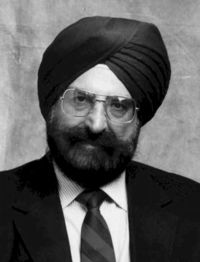Narinder Singh Kapany – The unknown founder of optical fibers
India’s contributions to science can be dated as far back as the prehistoric era and to the time when the Indus Valley Civilization was at its peak. India has continued producing its own major share of geniuses who have played irrefutable roles in the development of science and technology, in the modern era too. One such genius is Narinder Singh Kapany, the lesser-known founder of optical fibres.

Image Credit – http://www.sikhiwiki.org/index.php/File:Drkapany.jpg
Born on October 31, 1926 in the Northern State of Punjab, Narinder Singh graduated from Agra University and received his Ph.D in the study of optics from Imperial College, London, in the year 1955. His extensive study and research in this field, between 1952 and 1960, contributed heavily to the development of optical fibre technology in the 1960s. He was named one among the seven ‘Unsung Heroes’ by Fortune Magazine in their ‘Businessman of the Year’ issue in November 1999. Such was the magnitude of his contribution to the technology of fiber optics, without which, a lot of today’s advanced communication system and scientific machinery would have been impossible.
An optical fibre is a transparent, flexible tube of glass or plastic through which light can be transmitted from one end to the other. The most important application of this technology is fibre optics communication in which high-speed data transmission is possible because of optical fibres. Telephone and internet cables use this technology to transmit large quantities of data over extremely long distances. In medicine, it is used in the process of endoscopy, the technology to examine internal organs. Optical fibre is also a major component in the manufacturing of sensors, mobile devices and LED display devices.
Fibre optics technology would not have reached such heights without the contribution of Narinder Singh Kapany. Like him, there are many from our Nation who have accomplished a lot in their respective fields and remain incognito to the world. They are testimony to the work ethic of Indians, our capability in changing the world for the better without taking credit for it. However, it is our duty to acknowledge their achievements and honour them with the respect they deserve.


